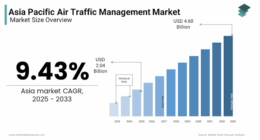Thailand’s Adoption of Global Minimum Tax Could Shift Investment Dynamics
As Thailand prepares to introduce the OECD’s Global Minimum Tax of 15% for multinational corporations starting January 1, 2025, experts speculate that this move could potentially lure multinational headquarters away from Singapore. The new tax policy aims to prevent tax competition and ensure that large corporations contribute fairly to the economy.
Implications of the Global Minimum Tax
Multinational companies with annual revenues exceeding 750 million euros will be required to adhere to this minimum corporate income tax rate. Meanwhile, smaller companies will continue to pay the standard corporate tax rate of 20%.
- Support from Business Leaders: Sanan Angubolkul, chairman of the Thai Chamber of Commerce, expressed support for aligning corporate tax rates closer to those of competing nations. He believes that lower tax rates for domestic businesses would enable them to reduce costs and hire more workers, ultimately contributing to Thailand’s economic recovery.
Boosting Investor Confidence in Thailand
Economic Recovery Through Tax Clarity
The introduction of the Global Minimum Tax is expected to enhance confidence among both Thai and foreign investors. Sanan noted that any revenue lost from reduced tax rates could be offset by increased investments.
- Alignment with BOI Policies: Kriengkrai Thiennukul, chair of the Federation of Thai Industries (FTI), emphasized that adopting this tax policy aligns with the Board of Investment (BOI) strategies aimed at attracting investment and positioning Thailand as a regional business hub.
Attracting Corporations from Singapore
Competitive Advantages for Thailand
With the new tax framework in place, Thailand could attract major corporations currently based in Singapore. The cost of living in Thailand is significantly lower, which may appeal to businesses looking to reduce operational expenses.
- Comparative Tax Rates: While Singapore maintains a competitive personal income tax rate of 17%, Kriengkrai highlighted that Thailand could leverage its advantages such as lower living costs, affordable rents, and cheaper labor to attract investors.
The Role of Lifestyle and Tourism
Weekend Getaways for Investors
Investors working in Singapore often travel to Thailand for weekend getaways. By relocating their offices to Thailand, these companies could benefit from substantial economic advantages while enjoying a more affordable lifestyle.
- Potential Economic Benefits: The influx of multinational corporations could lead to job creation and increased economic activity in Thailand, further solidifying its position as a viable investment destination.
A New Era for Thailand’s Investment Landscape
As Thailand implements the Global Minimum Tax and enhances its appeal as an investment hub, it stands at a pivotal moment where it could challenge Singapore’s long-held dominance. With strategic advantages such as lower operational costs and a commitment to improving the business environment, Thailand is poised to attract significant foreign investment in 2025 and beyond. The evolving landscape will depend on how effectively Thailand can capitalize on these opportunities while maintaining competitive advantages against established hubs like Singapore.









